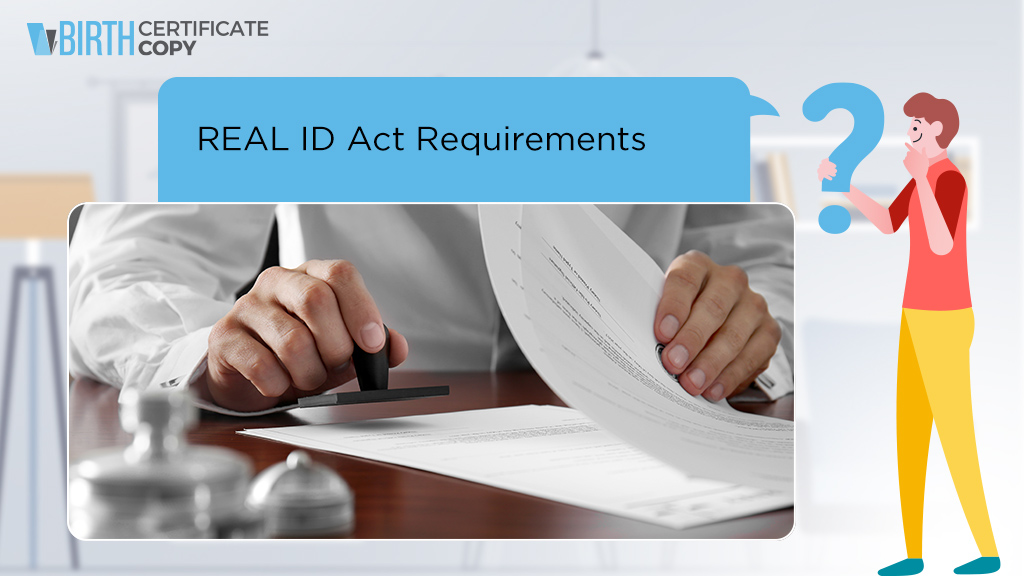The REAL ID Act is a federal law enacted in 2005 that establishes minimum security standards for state-issued driver’s licenses and identification cards. The purpose of this law is to enhance the security and integrity of identification documents and reduce identity fraud. In this comprehensive guide, we will explore the requirements set forth by the REAL ID Act, the impact it has on individuals, and the steps necessary for compliance.
What is the REAL ID Act?
The REAL ID Act requires states to meet specific security standards when issuing driver’s licenses and identification cards. These standards include verifying the applicant’s identity, conducting background checks, and incorporating certain features on the ID card itself. The goal is to create a more secure and reliable identification system to protect against identity theft and fraud.
Documents Required for REAL ID Act Compliance:
To obtain a REAL ID-compliant driver’s license or identification card, individuals must provide specific documents to verify their identity, date of birth, social security number, and residential address. The required documents may vary slightly from state to state, but common examples include a valid passport, birth certificate (abstract birth certificates are not acceptable), social security card, and proof of address such as a utility bill or lease agreement.
The Importance of REAL ID Act Compliance:
REAL ID Act compliance is crucial for individuals who wish to use their driver’s license or identification card as an accepted form of identification for domestic air travel and entry into federal facilities, such as military bases or federal courthouses. Starting October 1, 2023, individuals without a REAL ID-compliant card will need an alternative form of identification, such as a passport, to board domestic flights or access secure federal facilities.
Obtaining a REAL ID-Compliant Card:
To obtain a REAL ID-compliant card, individuals must visit their local Department of Motor Vehicles (DMV) or licensing agency and provide the required documents. It is important to check the specific requirements and procedures of your state’s DMV to ensure a smooth application process. Many states also offer the option to pre-apply online, which can help expedite the in-person visit.
Transition Period and Enforcement:
The Department of Homeland Security (DHS) has provided a transition period for states to become compliant with the REAL ID Act. During this period, both REAL ID-compliant and non-compliant cards are accepted as valid identification for domestic air travel and access to federal facilities. However, starting October 1, 2023, enforcement will be in full effect, and only REAL ID-compliant cards or alternative forms of identification will be accepted.
States with Extension or Limited Compliance:
While the majority of states are now fully compliant with the REAL ID Act, some states have been granted extensions or have limited compliance. Extensions allow additional time for states to meet the requirements, while limited compliance means that certain federal facilities may accept non-compliant cards from specific states. It is important to check the status of your state’s compliance to determine the validity of your current driver’s license or identification card.
Alternatives to REAL ID-Compliant Cards:
If you do not wish to obtain a REAL ID-compliant card or your state does not participate in the program, there are alternative forms of identification that are accepted for domestic air travel and federal facility access. These include U.S. passports, U.S. passport cards, military IDs, and trusted traveler program cards such as Global Entry or TSA PreCheck.
Complying with the requirements of the REAL ID Act is essential for individuals who want to use their driver’s license or identification card as valid identification for domestic air travel and access to federal facilities. By understanding the specific documents and procedures required by your state, you can ensure a smooth application process and avoid any inconvenience or disruption to your travel plans. Stay informed, check your state’s compliance status, and take the necessary steps to obtain a REAL ID-compliant card or alternative forms of identification to meet the October 1, 2023, enforcement deadline.
Currently, every state is now REAL ID compliant according to the Department of Homeland Security.
You can check your state’s status here: Real ID compliant states

